For many teachers, Artificial Intelligence (AI) is like a demon unleashed into this world with its ability to give answers to almost every question.
AI-powered programs and devices can make decisions, solve problems, understand, and mimic natural language and learn from unstructured data. In fall of 2022, OpenAI released ChatGTP which brought AI to many people’s attention for the first time. However, AI has been around for years; If you have scrolled through social media, or used Siri, you have already interacted with AI.
As the use of AI becomes more prevalent in society, there is often fear that it
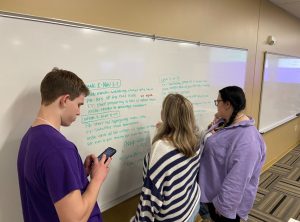
will lead to displacement of jobs, and crumble traditional ways of life. Specifically in schools, AI has become the epicenter of cheating.
“I think a lot of people cheat using AI in our school. I’ve seen at least six people use it in one of our papers. I’ve also seen a lot of other things, but yes I believe a lot of people use AI to cheat,” Payton Knipp, 9, said.
Teachers have started to adjust back to normal teaching methods after the pandemic, but many have found AI to be a new kind of challenge. Many worry that if students are exposed to generative AI, they will use it to cheat on assignments. Plus, AI tools can spit out false information.
Even though teachers might want to try to bury their heads into the sand, and pretend AI does not exist, they cannot escape it. It is like trying to ignore the elephant in the classroom. Thomas Sherron, an English teacher, teaches sophomores and seniors. Sherron acknowledges that AI can be abused to cheat on an essay, but chooses to believe their students.
“It cannot be ignored that it is prevalent, and will probably continue to develop… I don’t know if it is a vulnerability, but I still have faith that most of my students have integrity, but I know that is not always the case. I know they cheat,.” Sherron said.
While it is true that AI will bring about some changes and challenges, it is important to recognize that it also has the potential to create new opportunities, and to improve our lives in many ways.
“I believe that as long as it doesn’t turn into a horror robot movie like the one with Will Smith, I think it is okay to advance AI,” Kevin Sanford, 12, said.
A school in Georgia has embraced the use of AI for grades K-12. Their goal is for students to think and learn how to problem solve with these tools to prepare them for the future. The teachers in the district are able to give them more challenging classwork when they are able to use AI.
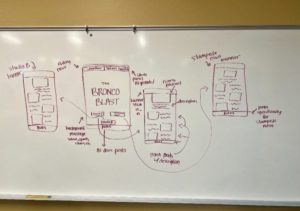
When New York City schools banned AI in January 2022, there was a realization that banning it would simply allow those with more technological options outside of schools—typically wealthier students—to use it, while poorer students would be left behind.
“I think that it is important for the world of education to adapt, and understand its presence, but still have a high expectation and standard that does not allow a blatant violation of plagiarism,” Sherron said.
Media students at Spring Hill High School had the opportunity to explore digital innovation and Kansas State University’s (KSU) next-gen digital degree and certificate programs at the KSU Olathe campus on Oct. 4. The two sessions focused on how AI is used in Media at the college. They were not trying to learn how to get around AI, but instead, how to embrace it.
“I guess it is kind of surprising to me that AI is actually being implemented and being somewhat successful in relation to how new it is. I feel like it is not something that you would think colleges would embrace,” Aidan Wycoff, 12, said.
The Mckinsey Global Institute estimates that ten percent of the jobs created by 2030 will be in the field of AI, and most jobs will have some level of automation.
“I think as long as it’s advancing to benefit society without taking jobs away from actual human beings, I think it should continue to advance and not be stopped. However, I do understand people’s concerns on where advancements could go which would not be good and should be stopped so that it doesn’t take over the world or some cliche thing like that,” Katelyn Breinholt, 11, said.
The U.S. Department of Education states that instead of banning AI, the technology should be used to enhance and support teachers.


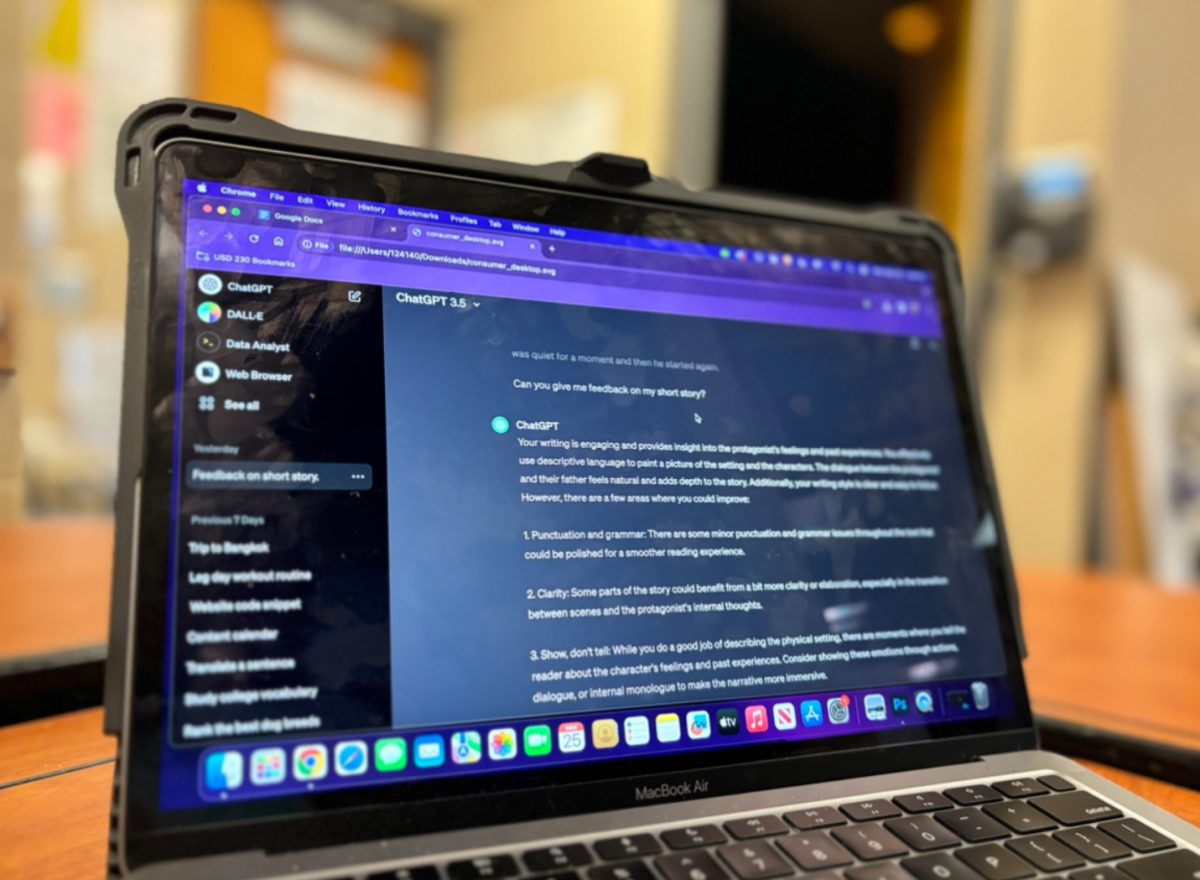



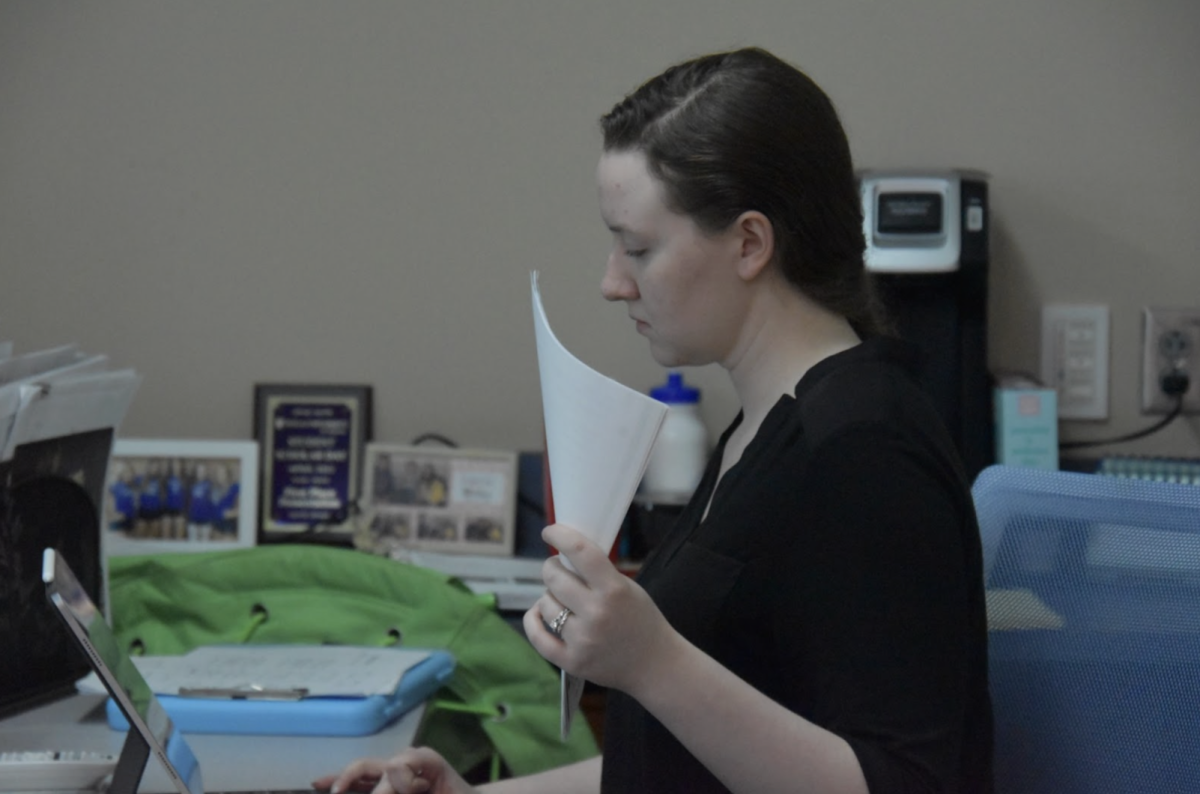
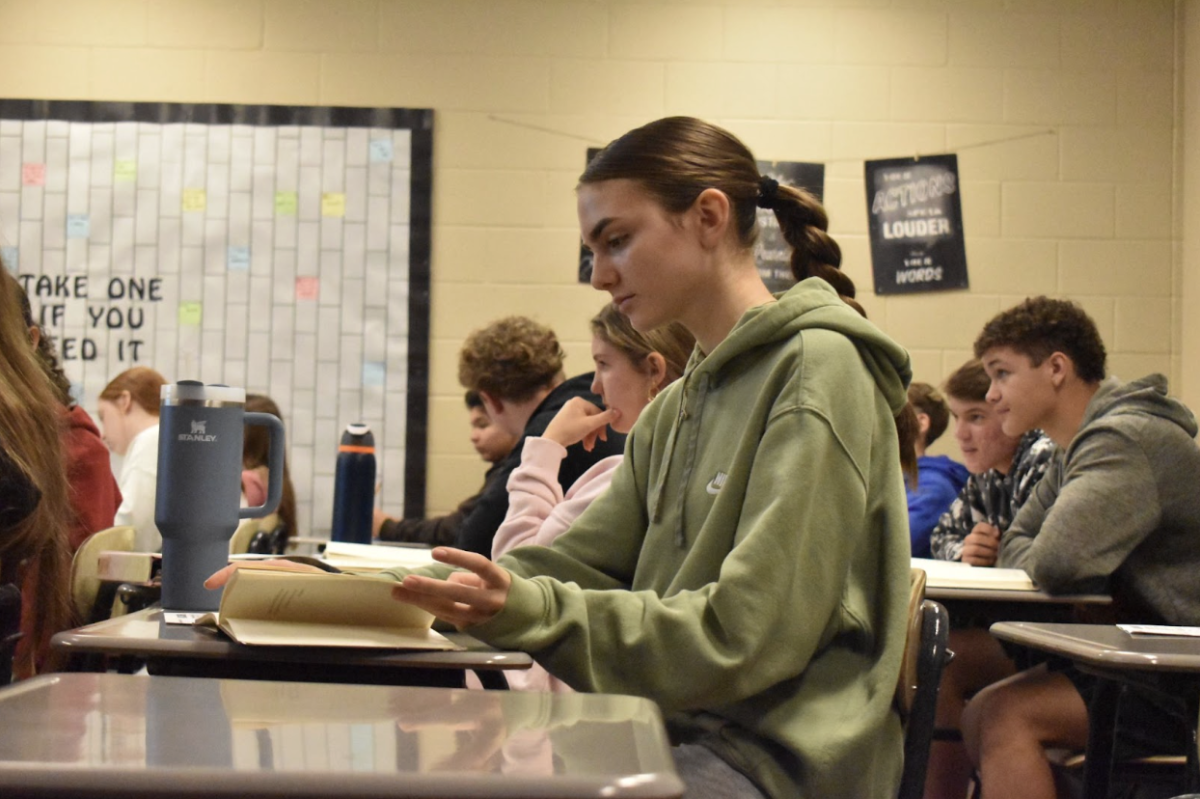

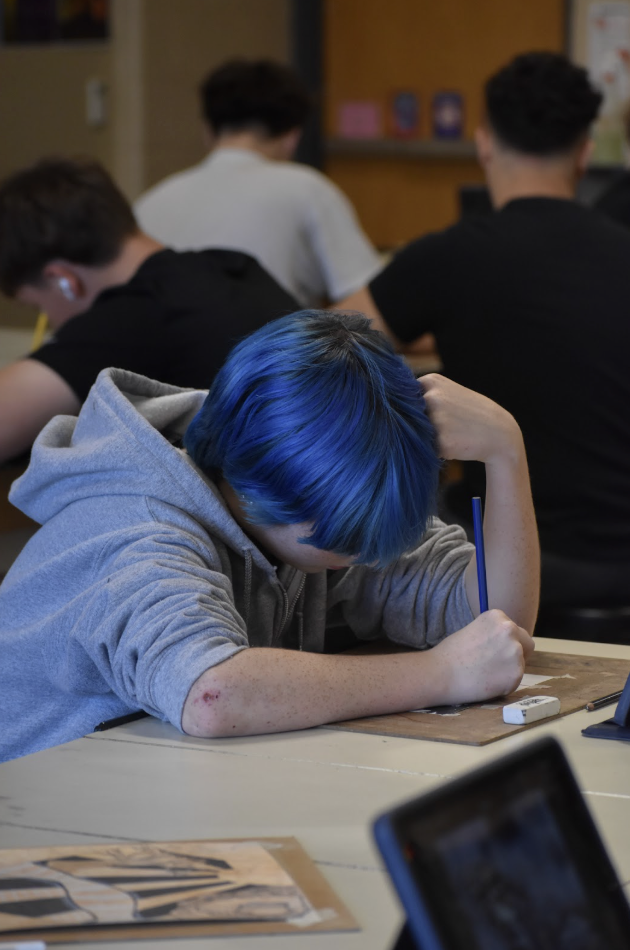

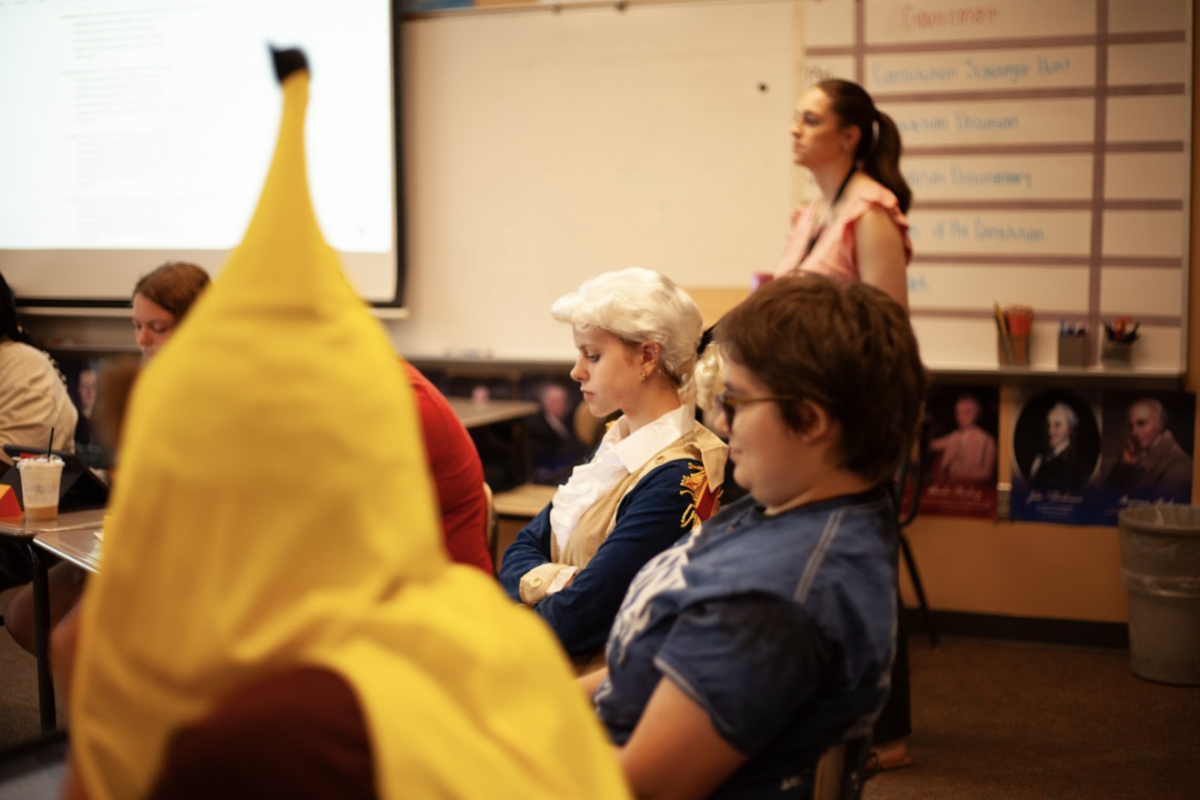
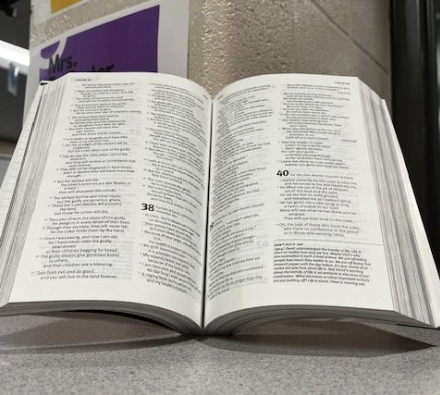

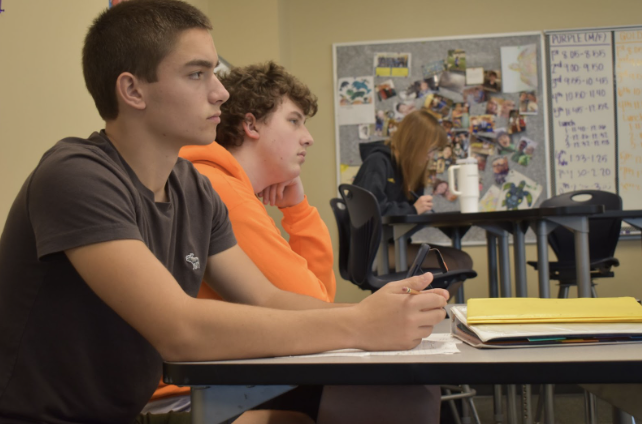
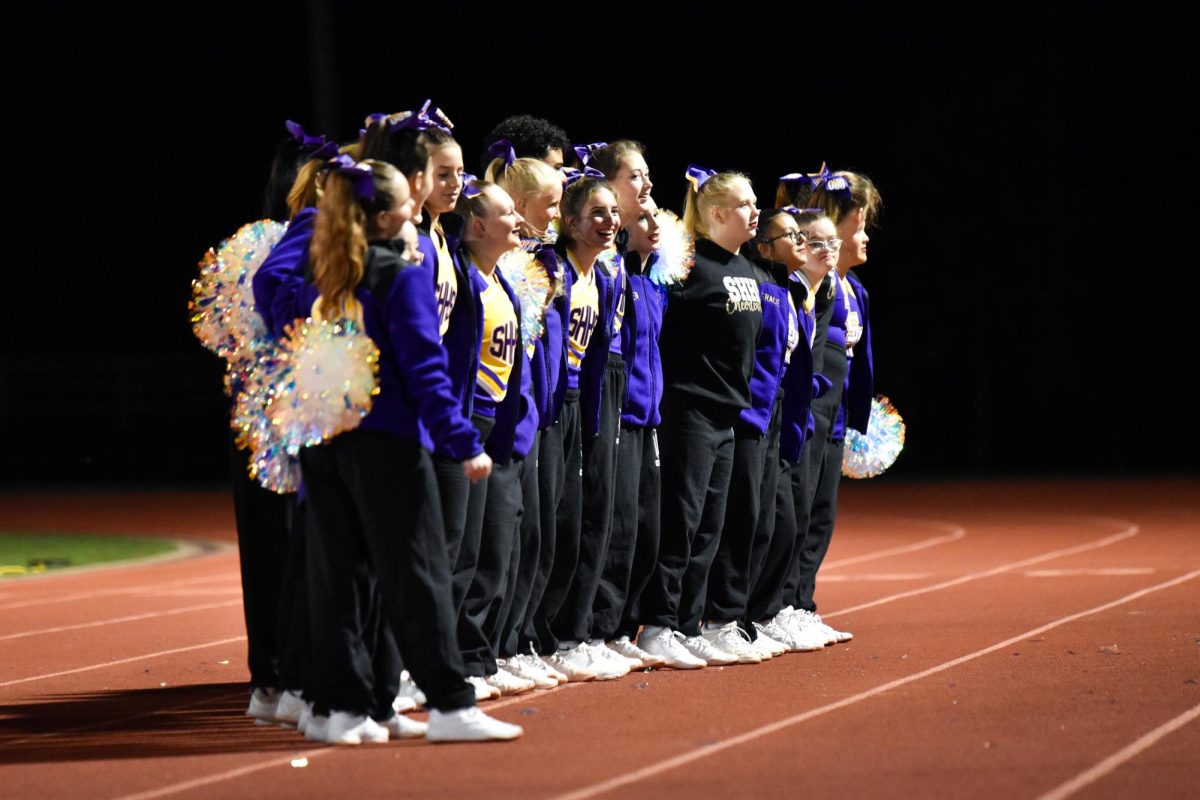
![Peering through their microscopes, [Brock] Laplante’s freshman Biology class has a hard time pretending they’re not interested. From sharp angles to swirling cells, there’s no predicting what could be seen.](https://stampedenews.net/wp-content/uploads/2025/10/Screenshot-2025-10-03-at-10.56.07-AM.png)




